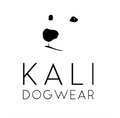Living in Bali, you usually see dogs that are underweight and malnourished. Though this is a big problem, there is also the tendency to spoil your former street dog and to compensate with food and treats. Obesity for dogs is real. And while no one wants to harm their dog on purpose, overweight is actually (same as for humans) really unhealthy and can cause serious health issues down the line. First of all: You should always get your dog checked by a veterinarian. Obesity can also be a sign of an undetected disease. Only your vet can meet your dog in person and decide wether your dog is overweight or not and help your dog to loose weight. Though our blog post will give you a great indicator and support you in your dogs weight-loss journey.
What are the risks of obesity?
It can shorten your dogs life without you even knowing it. With obesity or „unhealthy weight“ there is a higher chance for cancer, diabetes mellitus, heart diseases and high blood pressure (hypertension). Aswell as osteoarthritis which is a common form of arthritis, lung dysfunction and joint and back problems. Science has also revealed, that fat cells can be a source of inflammation as it actively secretes inflammatory mediators.
These are basically the same health issues as for humans.
What are the signs that your dog is obese?
-
If you can’t really distinguish the chest from the abdomen and it’s one straight line if you look from above
-
You can’t easily feel the ribs anymore
-
Your pet needs lots of breaks, while you are on a walk
-
Your dog doesn’t like to play much
-
Your dog naps more often
-
Your dog is easily out of breath
Now that you know the signs of an overweight dog, we can move on to: How can my dog lose weight?
-
Reduce the daily treats! Your dog doesn’t constantly need to chew something or get a treat every hour. If you are distracting your dog with bones, you might want to find solutions that doesn’t include actual food, like wood or toys. Or start preparing healthy snacks. If you are using treats to train your dog, try to find low fat treats and try to keep the treats as small as possible.
-
Calculate the amount of food your dog needs. Depending on the breed and age, your dog needs a different amount of food. Puppy’s need and eat way more because they are growing. But once your dog made it out of the growing phase, you need to adjust and see how much your friend really needs. Most of the brands that provide dog food give you an estimate and a scale depending. on your dogs age and the actual body weight your dog should have. If you can’t really calculate the amount of food and your dog’s obesity isn’t caused by an illness, you can slowly (!) start reducing the amount of food you are giving. Most common reason why your dog is overweight is overfeeding.
-
Exercise with your dog! Start slowly since your dog won’t really like exercising if he/she is overweight and it can also be tough on your dogs joints. If you don’t walk your dog much, start with short distances and keep track how far you have walked and then slowly increase the distance over the time. Also breaking it up to two shorter walks a day can be very beneficial. Always watch your dog and keep an eye out for any signs that your dog might get tired or feel pain in the joints. (Always check back with your vet, how much exercise is recommended, since every breed is different)
-
Bring your dog to the beach or dog park. You dog might start playing and will „work out“ as much as possible without forcing it. Keep an eye on your dogs breath. If you have a very overweight dog, he/she might have difficulties breathing.
-
Be consistent with the new habits and diet. Just like us humans, we don’t want the common yo-yo-effect in your dogs diet. Make slow changes until your dog reached the perfect body weight and then be consistent in when and how much you feed your dog. You should even use a scale or pre-portion the meals instead of eye-balling it. Good luck and let's make our dogs lives as healthy as it can be.




